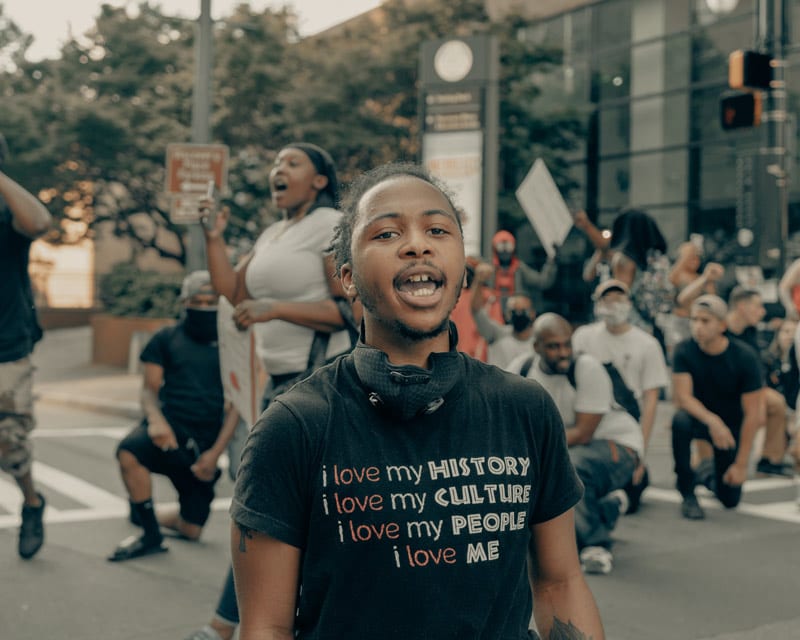There has always been an underlying stigma attached to mental health, even more so in the case of black, indigenous, and people of color (BIPOC) who often face mounting barriers to mental healthcare.
This July, in observance of the BIPOC Mental Health Month, let us take a closer look at the myriad of issues concerning mental health disorders and their impact on BIPOC. While health conditions do not discriminate based on race, color, gender, or identity, people from some demographics often have difficulties accessing mental health treatment and services, compounding the struggle to spread awareness and access better healthcare.
In the past decade, there has been a growing movement to practice diversity and inclusion in the mental health field. To fully understand the plight of BIPOC mental health, we need to take a deeper look at the obstacles that keep them from seeking help.
What Are These Challenges?
Cultural Differences in Understanding Mental Health
Mental health is viewed differently by various groups of people. For many Hispanic people, mental health is a medical issue that focuses on physical complaints, including stomach aches and body pain. Sorting out the emotional issues might not fit with how they perceive the problem. So, the chances of talking to a professional are lower.
Black people, on the other hand, often believe that mental illness is a personal sign of weakness. This mindset serves as an obstacle for them to seek mental health care when they need it. Asians, primarily Koreans, describe depression as a burning fireball in the back of their head. As a result, they tend to ask for help from medical physicians instead of turning to mental health professionals.
Stigma within the Community Regarding Mental Health
Often mental illness is considered taboo in many BIPOC communities. There is a long-standing belief in these areas that anxiety, depression, or sadness are a flaw. African-Americans, especially, take pride in their sense of perseverance and resilience. They have been through so much in history, surviving slavery and racial discrimination.
This leads to the failure of recognizing mental health disorders as a form of “illness,” much like cancer, diabetes, or hypertension. While many BIPOC are at risk of developing serious psychological distress, they are less likely to seek help and treatment. So, while 58% of students seek help with anxiety, students who come from BIPOC communities might not consider their experience with anxiety as something that would warrant help from mental health professionals.
Lack of Access and Resources for Mental Health Care
Another impediment to proper mental healthcare for BIPOC is the lack of access to resources. This could be in the form of insurance, transportation, and, more importantly, culturally sensitive treatment. Of course, those who cannot afford insurance could end up getting sub-par mental health care treatment and service.
Compound this with distrust and fear of the system, and there is a clear reason why it can be hard for BIPOC to gain access to quality mental healthcare.
What’s more, many communities are not aware of the available mental health resources. So, they won’t be able to utilize them.
Discrimination and Biases from Mental Health Care Providers
Last but certainly not least, perhaps the biggest challenge for BIPOC is the prevalence of discrimination and biases from mental health care providers. Sometimes, these biases are explicit. Other times, not so much. Either way, prejudice is present.
As a result, many people from BIPOC communities are less likely to receive treatment because many providers are more willing to treat Caucasian patients. Also, BIPOC patients tend to drop out of treatment, too, mainly because they do not feel understood by care professionals.
How Can We Overcome These Challenges?
Black, Indigenous, and People of Color face unique challenges that require unique solutions. The obstacles they face may be higher, but they are not impossible to solve. So, what can we do to improve mental health services for everyone?
Providing Culturally Competent Mental Healthcare
We can’t deny that many mental health professionals lack training and experience in providing culturally sensitive care. While it is impossible to know everything about everyone, reinforcement in the form of awareness campaigns and strong training programs can make a huge difference.
Mental health professionals should be prepared with the right knowledge and know-how for treating diverse groups of people. Now, more than ever, they need to be able to understand their clients’ context and culture to provide better quality care. This will also help lower drop-outs in treatment.
Raising Awareness to Address Mental Health
Awareness plays a huge role in the way mental health is addressed.
Since many people from a BIPOC background may be distrustful of the system, conducting information drives and community outreach can help address the disparities in the mental health field. One can start with church, family, and community leaders since this is where most BIPOC seek help first.
Understanding the Mental Health System
The mental health system is complex. Many people are unaware of what programs are available for them.
For one, healthcare professionals and policymakers need to take a bigger role in curbing disparities. Providing easier access to BIPOC is a step in the right direction.
Once the people behind the mental health system have this understanding of their roles and responsibilities, they can provide better health care for all, including BIPOC communities.
In Conclusion
As part of the observance of BIPOC Mental Health Month, it’s important to acknowledge and learn more about the issues these populations face. This way, it may be possible to leave deep-seated prejudices in the past, so that people from all communities can have access to proper mental health care.
About the Author:
Kristina Laova, community manager at markinstyle.co.uk. When I’m not writing at my desk, I’m devoted to ESL teaching and doing certified court translation. A vivid writer, a keen traveler and an adventurous soul as curious as humanity.
The world is my oyster.
linkedin.com/in/kristina-laova-878410159
Photo by Clay Banks on Unsplash
The opinions and views expressed in any guest blog post do not necessarily reflect those of www.rtor.org or its sponsor, Laurel House, Inc. The author and www.rtor.org have no affiliations with any products or services mentioned in the article or linked to therein. Guest Authors may have affiliations to products mentioned or linked to in their author bios only.
Recommended for You
- Reclaiming Your Future: Effective Strategies for Addiction Recovery - March 26, 2025
- Coping With Social Anxiety In School: Strategies For Success - March 24, 2025
- Overcoming Trauma and Living with Depression: A Journey of Healing - March 20, 2025





